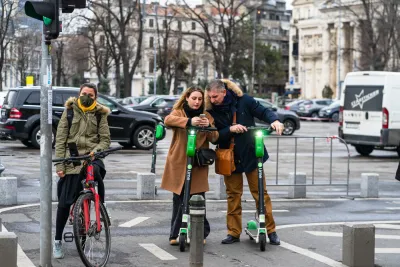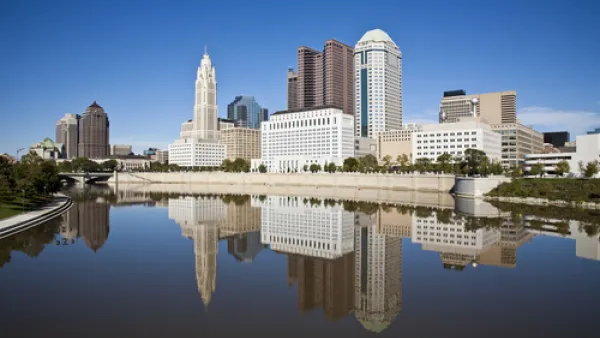The director-general of the World Health Organization announced on Wednesday that the COVID-19 viral disease that has killed more than 4,000 people, infected nearly 120,00 people and is present in 114 nations is a pandemic.

Director-General Tedros Adhanom Ghebreyesus of the World Health Organization (WHO), a specialized agency of the United Nations that is concerned with world public health, announced on March 11 in Geneva that "[t]here are now more than 118,000 cases in 114 countries, and 4,291 people have lost their lives."
In the days and weeks ahead, we expect to see the number of cases, the number of deaths, and the number of affected countries climb even higher.
WHO has been assessing this outbreak around the clock and we are deeply concerned both by the alarming levels of spread and severity, and by the alarming levels of inaction.
We have therefore made the assessment that COVID-19 can be characterized as a pandemic.
According to WHO, "a pandemic is declared when a new disease for which people do not have immunity spreads around the world beyond expectations," writes Melissa Davey for The Guardian.
Once a pandemic is declared, it becomes more likely that community spread will eventually happen, and governments and health systems need to ensure they are prepared for that.
An epidemic, on the other hand, is a sudden increase in cases of an illness or disease that can be unique to one country or community.
Davey clarifies Tedros' statement that "[w]e have never before seen a pandemic sparked by a coronavirus. This is the first pandemic caused by a coronavirus."
The Severe acute respiratory syndrome (SARS) -related coronavirus, "identified in 2003, was not declared a pandemic by the WHO despite affecting 26 countries. However, its spread was contained quickly, and only a handful of nations were significantly affected, including China, Hong Kong, Taiwan, Singapore and Canada."
Why not to call it a pandemic?
If declaring a pandemic triggers global panic, this can defeat the purpose of trying to raise awareness. Much has been written about whether the declaration of H1N1, colloquially known as “swine flu”, as a pandemic in 2009, caused unnecessary panic, overwhelming emergency departments and causing governments to overspend on antiviral medications. Coronavirus symptoms are generally mild and most people recover within six days.
Finally, by calling in a pandemic, nothing really changes in terms of how to approach the disease. WHO continues to urge countries to “detect, test, treat, isolate, trace and mobilise their people”.
“The use of this term, however, highlights the importance of countries throughout the world working cooperatively and openly with one another and coming together as a united front in our efforts to bring this situation under control," states Dr Nathalie MacDermott, a National Institute for Health Research academic clinical lecturer at King’s College London.
Related in Planetizen:
- A Nation of 60 Million on Lockdown, March 11, 2020
- Feature: The Census Faces its Toughest Challenge Yet: Coronavirus, March 11, 2020
- Coronavirus Effects on the Global Transportation System, March 9, 2020
-
NIMBY Politics Sway the Fight to Contain Coronavirus, March 4, 2020
-
Stay Off Subways And Planes, Says Biden, May 2, 2009VP Biden, on NBC's 'Today Show' April 30, told viewers he would tell his family to stay off planes and subways because of fear of infection by swine flu virus. Medical experts were quick to disagree, and his office had to issue a retraction.
FULL STORY: What is a pandemic?

Analysis: Cybertruck Fatality Rate Far Exceeds That of Ford Pinto
The Tesla Cybertruck was recalled seven times last year.

National Parks Layoffs Will Cause Communities to Lose Billions
Thousands of essential park workers were laid off this week, just before the busy spring break season.

Retro-silient?: America’s First “Eco-burb,” The Woodlands Turns 50
A master-planned community north of Houston offers lessons on green infrastructure and resilient design, but falls short of its founder’s lofty affordability and walkability goals.

Test News Post 1
This is a summary

Analysis: Cybertruck Fatality Rate Far Exceeds That of Ford Pinto
The Tesla Cybertruck was recalled seven times last year.

Test News Headline 46
Test for the image on the front page.
Urban Design for Planners 1: Software Tools
This six-course series explores essential urban design concepts using open source software and equips planners with the tools they need to participate fully in the urban design process.
Planning for Universal Design
Learn the tools for implementing Universal Design in planning regulations.
EMC Planning Group, Inc.
Planetizen
Planetizen
Mpact (formerly Rail~Volution)
Great Falls Development Authority, Inc.
HUDs Office of Policy Development and Research
NYU Wagner Graduate School of Public Service




























